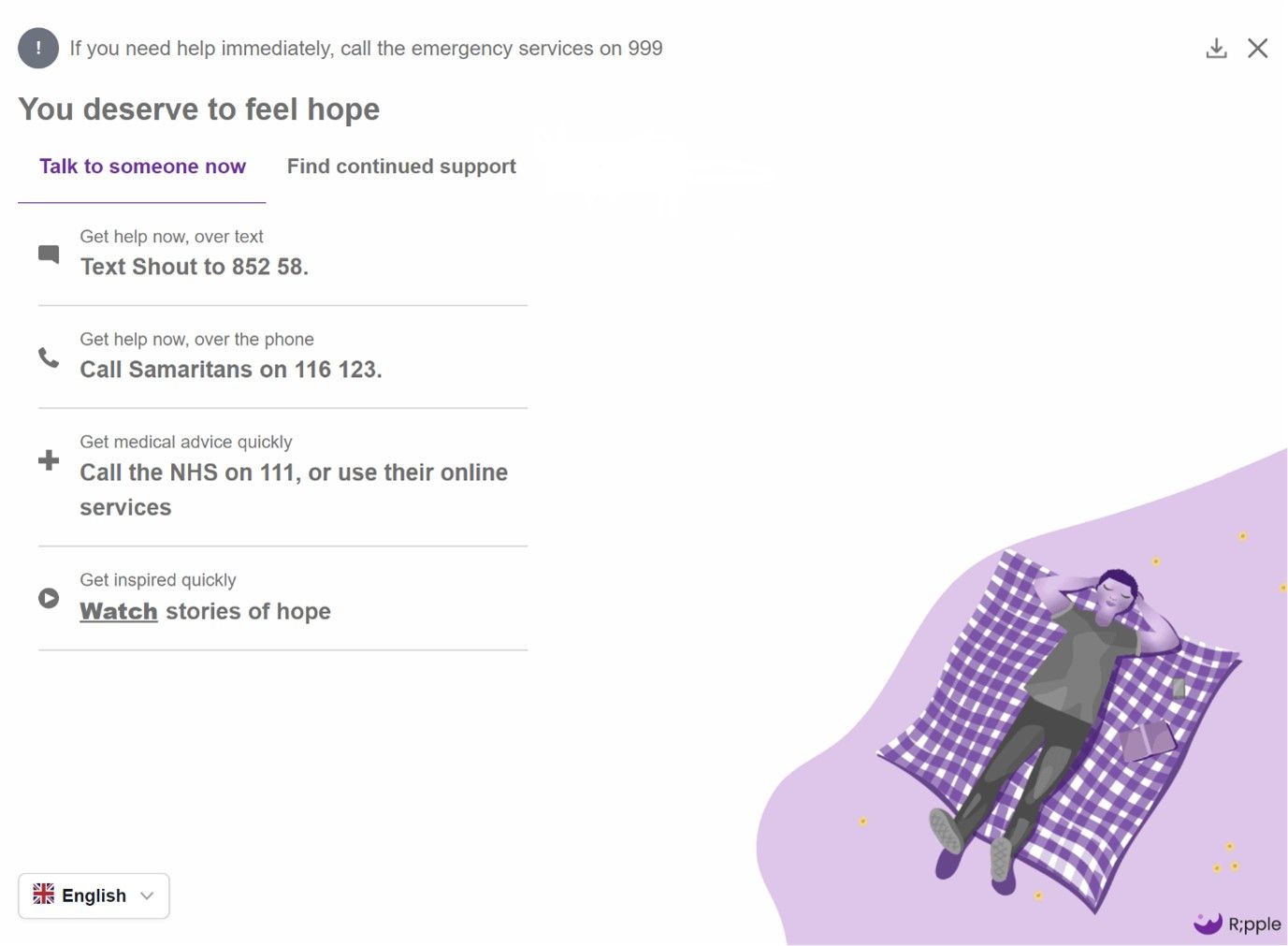The missing piece in online safeguarding: suicide prevention
)
Trigger Warning: Suicide
This article contains discussions and references to suicide. Reader discretion is advised.
2024 Bett speaker, Sam Smith, shares how universities can do more to support students who may be at risk of suicide.
With suicide being the leading cause of death for people under 35, educators are under increased pressure to stop the deadly toll. Far too often, though, safeguarding measures fall short in addressing suicide's covert ally - online content relating to self-harm and suicide. Blocking access to harmful content is just a fraction of the solution. What is crucial is guiding students towards the support they desperately need during their moments of vulnerability.
Suicide’s invisible accomplice
While online harm of all types is a growing danger, governments and society at large are still lagging in addressing this issue. The numbers are alarming: 1.2 million internet searches for ways to take your own life take place every month, globally. (Suicide Forum). Additionally, research from The Lancet and the University of Manchester indicates that over 20% of suicide cases in the under 20s had a suicide-related search history.
R;pple Suicide Prevention is leading the way with technical solutions to online harm and advocating for change at the highest levels. We are on a mission to save lives by intercepting harmful online searches and redirecting individuals to support services they can access immediately and in the longer term.
Founded by Alice Hendy MBE, R;pple emerged from her personal tragedy—the loss of her brother Josh to suicide at the age of 21. Josh had been researching over the internet techniques to take his own life. Discover our story and why it matters.
How R;pple helps
R;pple is a digital crisis intervention tool, supporting individuals who find themselves searching online for harmful content regarding self-harm and suicide.
It intercepts the search, helping the person pause for a moment and reminding them that they deserve to feel hope and there is help available for them immediately and in the longer run.

The R;pple tool can be delivered as a browser extension or through WIFI and has a wide safeguarding reach across devices, buildings and spaces. It does not collect, monitor or track any personally identifiable information and works alongside any existing filtering already in place.
R;pple’s impact to date
R;pple has intercepted over 34,000 harmful searches and is protecting over 1.8 million users. It has saved countless lives with numerous individuals contacting R;pple to say the tool encouraged them to get help and they are still here today because of it.
A steadily growing number of universities, colleges and schools see R;pple as the missing piece in their online safeguarding efforts and utilise it for free to better protect both students and staff.
R;pple is committed to making a positive change and improvements to mental health and suicide prevention in the education sector. We are advocating at the highest level and are involved in the development of national guidance along with universities and industry professionals helping to shape the way the education sector prevents suicide.
We will continue advancing our life-saving tool and are committed to spread its reach, making sure no individual is left unprotected in their darkest hours.
It’s simple: the more devices connected to the Internet have R;pple on, the more lives will be saved to suicide.
Learn more about R;pple for Educators and download it for free here or contact us for more details.
Tags
- content
- harmful
- individuals
- internet
- lives
- missing
- more
- online
- over
- piece
- prevention
- rpple
- safeguarding
- searches
- students
- suicide
- support
- take
- tool
- under
- universities


)
)
)
)
)
)
)
)
)